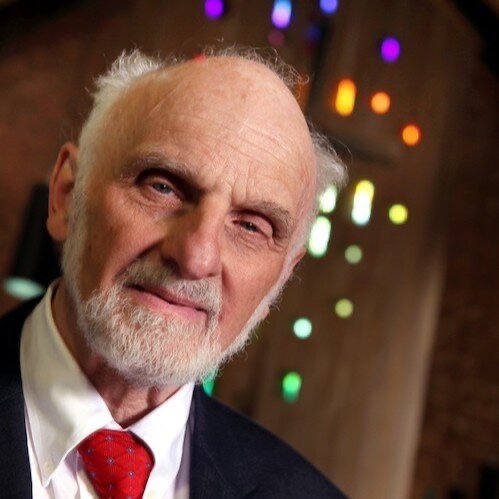Walter Brueggemann Column
Church Anew is honored to host Walter Brueggemann as our featured columnist. We look forward to sharing Walter’s work with church leaders and faithful people worldwide. May his powerful and reflective writings inspire, energize, guide, and comfort you.

A Preacher's Dilemma: Verse 12?
The first, very important task of exegesis was to determine the extent of the textual unit, where it began and where it ended. This is often clear and self-evident in scripture; but sometimes it is not. Jeremiah 18:1-11 and Jeremiah 18:1-12 offer somewhat contradictory, but equally valuable, interpretations of scripture that can be relevant to modernity and thus strategic to ministry.

The Dangerous Arson of a Bramble
When good leadership does not step up to responsibility, it may go by default to nefarious control of others who intend no positive outcome for the common good.

Rescinding Absolutes
It turns out, through the repudiation of the doctrine by Pope Francis, that no “absolute” that stands against human dignity and human wellbeing is a sustainable absolute. All such claims are relative to time, place, circumstance, and vested interest.

Originalism?
In the Bible itself we may observe the tension between “originalism” of “God’s own words” and the freedom of interpretation and commentary that make it possible to rearticulate the text in response to the present social reality of the interpreter.

Miskotti on “Resistance”
Miskotti’s words are an invitation for us to think again and appropriate anew the reality that our engagement with the God of the gospel is indeed a conversation, an exchange that can and must be acted out in the public domain. It is this non-negotiable gift of such an exchange that is the most elemental practice of the church.

History is Clay
The world is indeed malleable, given leadership that is grounded, bold, and caring
Cascade! Divine?
The text of Job 1:13-19 is part of a “folk tale” in the Book of Job that frames the poetry that follows. The “folk tale” gives us a glimpse of the governing power of the creator God which is concealed from Job. God is unnamed in these verses though verse 16 allows a conventional phrase, “the fire of God.” It is often noted that in the prologue and the epilogue of the Book of Job, God is called by the Israelite name, YHWH. That naming of YHWH anchors the Book of Job in the Israelite tradition, even though in the poetry Job God is not so identified. In any case, behind the narrative is the governing force and will of the creator God who makes covenant with Israel.

The Voice of the Victim
In this blog, Walter Bruggemann discusses an unlikely group of people who come together through music. He connects this to the book of revelation and the Roman Empire.

A Music-Making Counter-Community
In this blog, Walter Bruggemann discusses an unlikely group of people who come together through music. He connects this to the book of revelation and the Roman Empire.

Tractor: Icon of Predatory Development
In this blog, Walter Bruggermann compares three examples of authors using the tractor as a symbol of exploitation and industrialization.


Hoe! Hoe! Hoe!
In this blog, Walter Bruggermann reflects on Amos 9:7 and how everyone including the marginalized and underrepresented are beloved children of God.

Two Farmers…Two Ways
In this blog, Walter Bruggermann reflects on Amos 9:7 and how everyone including the marginalized and underrepresented are beloved children of God.

The God of the Other (Amos 9:7)
In this blog, Walter Bruggermann reflects on Amos 9:7 and how everyone including the marginalized and underrepresented are beloved children of God.

Reflecting Awe: Intersecting Pietism, Faith, and Science
The tradition of pietism that informs my faith was enormously elastic and agile in its recognition of new learning, including advances in science.


Humanity Erased?
We remain before the tricky question, “What is a woman or man”? What is humanity? The answer we give to that question is that we humans are “lord of all, servant of all.” I suspect that Kirsch and his company would and could to some great extent share that conviction. The hard part is living it out, and thereby creating futures that are beyond technological rationality. That hard work is the reason we gather regularly around the news of dying and being raised to new life.

The End of Imagination?
Imagination is the capacity to host a world other than the one that is in front of us. Such an act of hosting an alternative world is inherently subversive, as it serves to question and override the world in front of us that we too easily take as given.

Trees: Signals of Hope and Defiance
The children’s book by Franck Prevot is entitled Wangari Maathai: The Woman Who Planted Millions of Trees (2015) has led me to think about trees and the role they play in the Bible for a viable creation (and a viable economy). That crucial role played by trees has been played since the appearance of trees on the third day of creation (Genesis 1:11-13). This is some of what I learned about trees in the Bible.

Singing the Counter-Culture
We know and trust that the force of this other world does not evaporate when we close our hymnals. It persists. Our signing into that other world may also persist. We return to our more mundane worlds close at hand. But the singing persists and so that world persists among us, deabsolutizing the world in front of us, permitting us to host that other world and sign on for “a more excellent way” marked by faith, hope, and love.

